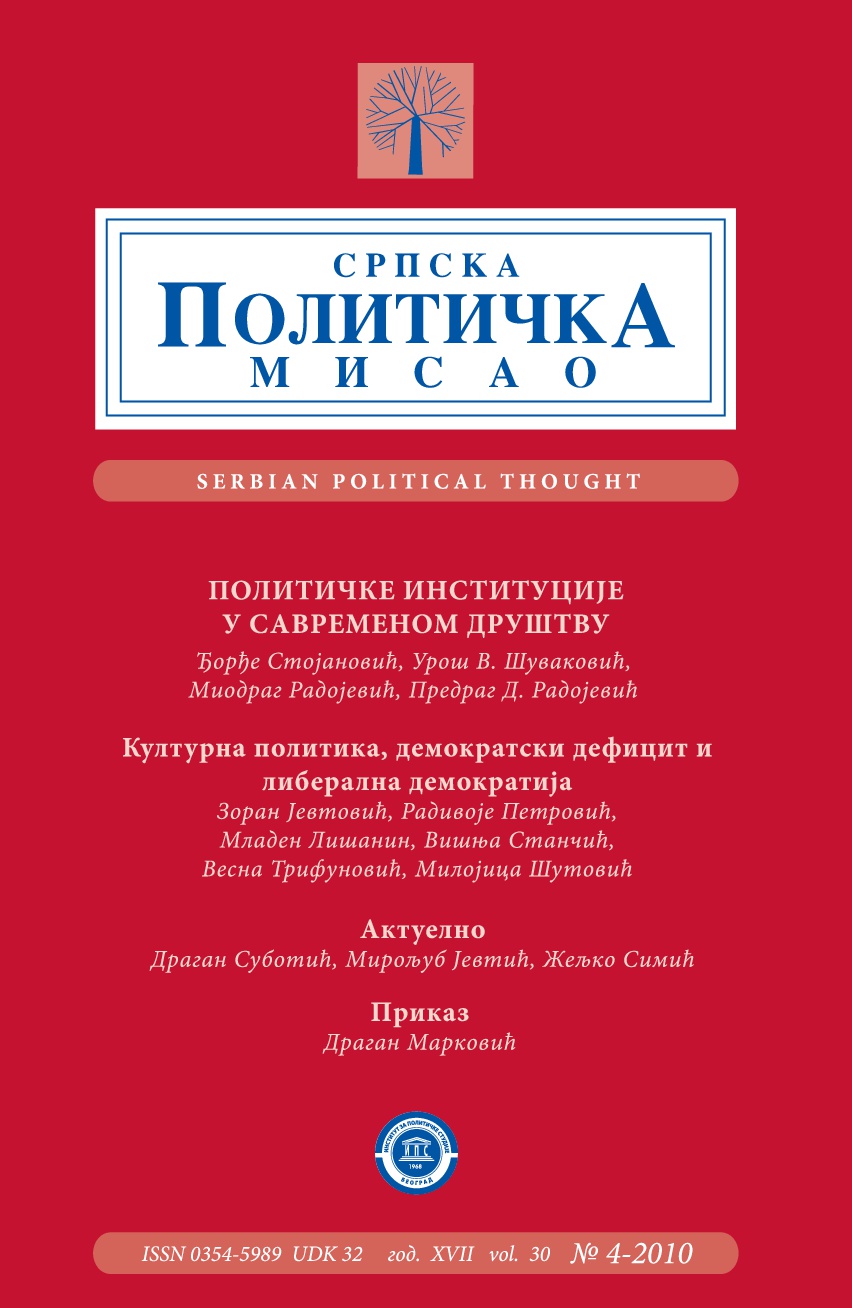Јавно мнење и демократски дефицит у добу мултимедија
Public Opinion and Democratic Deficit in the Age of Multimedia
Author(s): Zoran B. Jevtović, Radivoje PetrovićSubject(s): Media studies, Civil Society, Government/Political systems, Politics and communication
Published by: Институт за политичке студије
Keywords: communication space; democratic deficit; digitization; new journalism; news; public opinion;
Summary/Abstract: The authors examine the problem of constructing public communication space and the crisis of journalism caused by the emergence and development of digital multimedia. The Internet has broken with the conventional interpretation of space and time, globalization has significantly improved the content of communications, while conglomeration initiated the process of creating an information market, bringing a combination of news and entertainment. Hence journalism has increasingly become the dominant branch of political or economic elites, in which the information monopoly is threatening the control of public space, which affects the weakening of democratic capacities in international communication. The focus is on research of activities of new media and “tectonic disturbances” in the structure of journalistic genres, especially news. The traditional concept of authoritative media is gradually eroding, the character of social elites, and governance also is changing, threatening a civil function of journalism. New forms of communication managing reality: The real message is change by the image, the critical depth – by the aesthetic surface, and argumentation and “Research disturbance” withdraw toward the silver- tongued political assurances, fun and sensations. Limited public attention saturates by the unlimited amounts of information, and routing of content in multimedia under the pressure of digital metrics and affection of the audience produces economic traffic and ideological influence, regardless of public interest. Power of management is moving towards the creation and presentation of events and information, building social ties and false homogeneity as a vague ideals of equality and satisfaction. The digital revolution is changing the ethical, political and communicational practice, opening a new paradigm in the battles for control of public opinion!
Journal: Српска политичка мисао
- Issue Year: 2010
- Issue No: 4
- Page Range: 105-126
- Page Count: 21
- Language: Serbian

